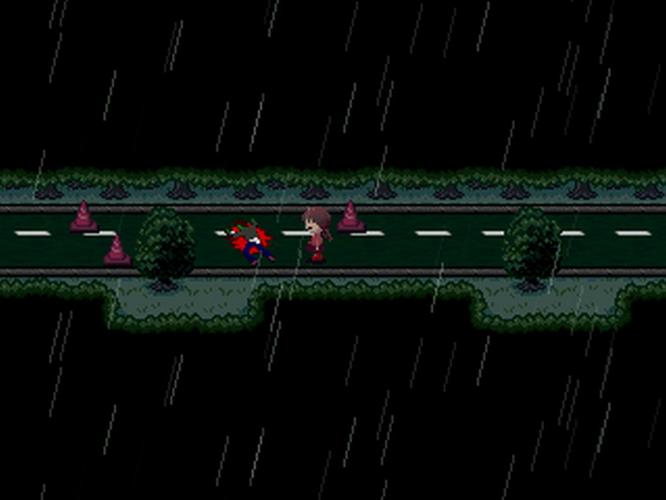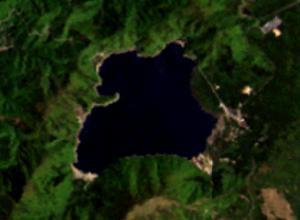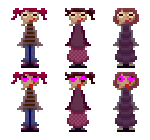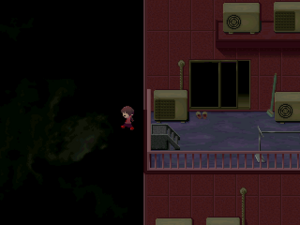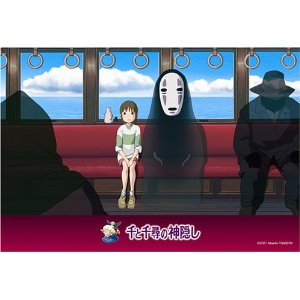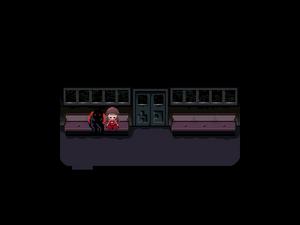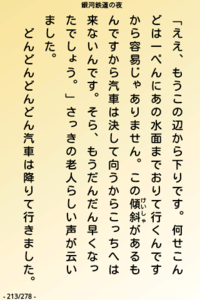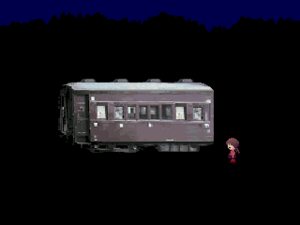>Mt.kiki No edit summary |
>Mt.kiki (Cat) |
||
| Line 125: | Line 125: | ||
This is because the mass media expressed the "Green signal" as the "Blue signal", when a signal is introduced into Japan for the first time prewar days. | This is because the mass media expressed the "Green signal" as the "Blue signal", when a signal is introduced into Japan for the first time prewar days. | ||
==[[Effects#cat|Cat]]([http://en.wikipedia.org/wiki/Kasha_(folklore) Kasha (folklore)])== | |||
※"Madotsuki(Cat)" is a "Kasha(burning chariot;humanoid cat-demons)" on the "Road"? | |||
Kasha <span style="font-weight: normal;">(火車<sup>[http://en.wikipedia.org/wiki/Help:Installing_Japanese_character_sets <span class="t_nihongo_icon" style="font: bold 80%/normal sans-serif; padding: 0px 0.1em; color: rgb(0, 0, 238); text-decoration: none; font-size-adjust: none; font-stretch: normal;"><u>?</u></span>]</sup>, lit. "burning [http://en.wikipedia.org/wiki/Chariot <u>chariot</u>]" or "burning [http://en.wikipedia.org/wiki/Barouche <u>barouche</u>]")</span> is the name of a being from [http://en.wikipedia.org/wiki/Japanese_mythology <u>Japanese mythology</u>], belonging to the higher range of [http://en.wikipedia.org/wiki/Demon <u>demons</u>], the [http://en.wikipedia.org/wiki/Y%C5%8Dkai <u>Yōkai</u>]. The belief in Kashas is rooted in [http://en.wikipedia.org/wiki/Shintoism <u>Shintoism</u>] and [http://en.wikipedia.org/wiki/Buddhism <u>Buddhism</u>]. | |||
[http://en.wikipedia.org/wiki/Kasha_(folklore)#Description <u>1 Description</u>] | |||
[http://en.wikipedia.org/wiki/Japan <u>Japanese</u>] [http://en.wikipedia.org/wiki/Folklore <u>folklore</u>] describes the Kasha as [http://en.wikipedia.org/wiki/Human <u>humanoid</u>] [http://en.wikipedia.org/wiki/Cat <u>cat</u>]-demons with the head of a cat or [http://en.wikipedia.org/wiki/Tiger <u>tiger</u>] and a burning tail. They are similar to other demons such as [http://en.wikipedia.org/wiki/Nekomata <u>Nekomata</u>] and [http://en.wikipedia.org/wiki/Bakeneko <u>Bakeneko</u>] and get often interchanged with them. | |||
==[[The Dense Woods]]([http://en.wikipedia.org/wiki/Art_therapy Art therapy])== | ==[[The Dense Woods]]([http://en.wikipedia.org/wiki/Art_therapy Art therapy])== | ||
※The red corn on the street has suggested the deadlock of life? | ※The "red corn" on the street has suggested the deadlock of life? | ||
<span style="display: none;"> </span><span id="cke_bm_43E" style="display: none;"> </span><span style="display: none;"> </span><span id="cke_bm_43S" style="display: none;"> </span><span style="display: none;"> </span><span id="cke_bm_44E" style="display: none;"> </span><span style="display: none;"> </span><span id="cke_bm_44S" style="display: none;"> </span><span style="display: none;"> </span><span id="cke_bm_46E" style="display: none;"> </span><span style="display: none;"> </span><span id="cke_bm_46S" style="display: none;"> </span><span style="display: none;"> </span><span id="cke_bm_47E" style="display: none;"> </span>[http://en.wikipedia.org/wiki/Art_therapy#Art-based_assessments <u>7 Art-based assessments</u>] [http://en.wikipedia.org/wiki/Art_therapy#Road_drawing <u>7.4 Road drawing</u>] | <span style="display: none;"> </span><span id="cke_bm_43E" style="display: none;"> </span><span style="display: none;"> </span><span id="cke_bm_43S" style="display: none;"> </span><span style="display: none;"> </span><span id="cke_bm_44E" style="display: none;"> </span><span style="display: none;"> </span><span id="cke_bm_44S" style="display: none;"> </span><span style="display: none;"> </span><span id="cke_bm_46E" style="display: none;"> </span><span style="display: none;"> </span><span id="cke_bm_46S" style="display: none;"> </span><span style="display: none;"> </span><span id="cke_bm_47E" style="display: none;"> </span>[http://en.wikipedia.org/wiki/Art_therapy#Art-based_assessments <u>7 Art-based assessments</u>] [http://en.wikipedia.org/wiki/Art_therapy#Road_drawing <u>7.4 Road drawing</u>] | ||
Revision as of 09:05, 9 March 2013
The Dense Woods(樹海)
※Name of 「樹海」 is debug name that "Yumenikki Map File"
樹海(じゅかい)
Ocean of foliage
- It is a vast forest like the sea.Aoki-hara (ocean-of-foliage of the Mt.Fuji) is famous in Japan.
- Slang which points out the thing in a mountain or woods which commits suicide from Aoki-hara being made into the famous place of suicide.
※Relevance with "The Wood of the Self-Murderers: The Harpies and the Suicides" http://yumenikki.wikia.com/wiki/The_Dense_Woods(name)#The_Dense_Woods.28Kimajo.29
The Dense Woods(LSD (video game))
Developer(s) - OutSide Directors Company
Platform(s)PlayStation, PSN
『LSD (video game) 』 Release date(s) - JP October 22, 1998
http://en.wikipedia.org/wiki/LSD_(video_game)_
※Relevance with "Mt. Fuji of Yumenikki" of " Mt.Fuji of LSD (game)".
http://yumenikki.wikia.com/wiki/Number_World(name)#The_Stabbing_Room.28Mount_Fuji.29
The Dense Woods(Kimajo)
Harpies remained vivid in the Middle Ages.
In his Inferno, XIII, Dante envisages the tortured wood infested with harpies, where the suicides have their punishment in the seventh ring of Hell:
http://en.wikipedia.org/wiki/Harpy
Here the repellent harpies make their nests,
Who drove the Trojans from the Strophades
With dire announcements of the coming woe.
They have broad wings, a human neck and face,
Clawed feet and swollen, feathered bellies; they caw
Their lamentations in the eerie trees.[6]
William Blake was inspired by Dante's description in his pencil, ink and watercolour "The Wood of the Self-Murderers: The Harpies and the Suicides" (Tate Gallery, London)
Toriningen(Harpy)
In Greek mythology, a harpy (Greek: ἅρπυια, harpyia, pronounced [hárpuja]; Latin: harpeia) was one of the winged spirits best known for constantly stealing all food from Phineus. The literal meaning of the word seems to be "that which snatches" as it comes from the Greek word harpazein (ἁρπάζειν), which means "to snatch".
Witch's Island(Anemoi)
※Dress and hair which hang over the wind from the east.
Added by pumoo milk
http://www.youtube.com/watch?v=d96T6J38Dhc
Shitai-san(Traffic light)
※It seems that a "green skin" originates in a "Green walking-man", "Red blood" originates in a "Red light".
2 Types 2.4 Pedestrian and cyclist crossing lights 2.4.4 British standard
British standard
In the United Kingdom, British Crown Dependencies and dependent territories, and former possessions like Hong Kong:
- Green walking-man: Cross with caution (pedestrians have the right of way; motorists turning left or right must yield to pedestrians
- Flashing green walking-man: Continue to cross if already in the intersection, but do not start to cross
- Red/Orange standing-man: Do not cross
※ "Blue jeans" originates in a Japanese "青信号(green/blue) light".
日本では緑色表示を「緑信号」ではなく「青信号」と表現されている。
In Japan, the green display is expressed as the "Blue signal" instead of a "Green signal."
これは戦前、信号機が日本に初めて導入された際、マスメディアが「緑信号」を「青信号」と表現したことによるものである。
This is because the mass media expressed the "Green signal" as the "Blue signal", when a signal is introduced into Japan for the first time prewar days.
Cat(Kasha (folklore))
※"Madotsuki(Cat)" is a "Kasha(burning chariot;humanoid cat-demons)" on the "Road"?
Kasha (火車?, lit. "burning chariot" or "burning barouche") is the name of a being from Japanese mythology, belonging to the higher range of demons, the Yōkai. The belief in Kashas is rooted in Shintoism and Buddhism.
1 Description Japanese folklore describes the Kasha as humanoid cat-demons with the head of a cat or tiger and a burning tail. They are similar to other demons such as Nekomata and Bakeneko and get often interchanged with them.
The Dense Woods(Art therapy)
※The "red corn" on the street has suggested the deadlock of life?
7 Art-based assessments 7.4 Road drawing
Road drawing
In this drawing assessment and therapeutic intervention, the patient is asked to draw a road. This is a projective assessment used to create a graphic representation of the person's "road of life." The road drawing has the potential to elicit spontaneous imagery that represents the client's origins, the history of his or her life process, experiences to date, and intent for the future - even from a single drawing (Hanes, 1995, 1997, 2008). The road's reparative features or its need for "periodic upgrade" can serve as a metaphor for the client's capacity for change and restoration (Hanes, 1995, 1997, 2008).
Traincar(Spirited Away)
※"Spirited Away" is no train of return.
釜爺の「間違えるなよ。昔は戻りの電車があったんだが、近頃は行きっぱなしだ」という台詞。
釜爺 "don't mistake.Although there was a train of return a long time ago, it only goes recently"
※"Night on the Galactic Rainroad" is no train of return.
銀河鉄道の夜(Night on the Galactic Rainroad)
「・・・この傾斜があるもんですから汽車は決して向うからこっちへは来ないんです。」
"... a train never comes here from the other side because of this inclination."
※It is not a steam locomotive(Galactic Train) but a train(Spirited Away's Train). http://yumenikki.wikia.com/wiki/Mars(name)#Final_Destination.28Night_on_the_Galactic_Railroad.29

